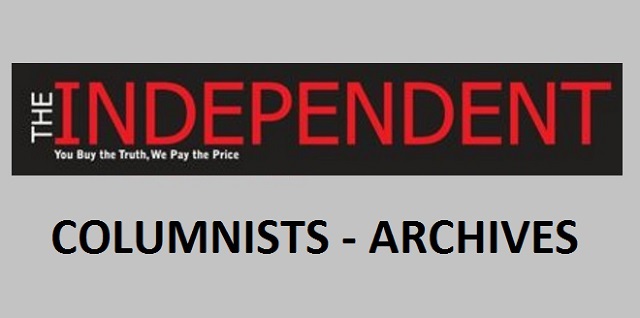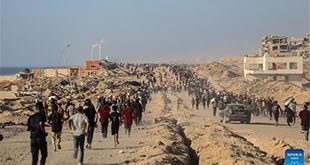
By Morrison Rwakakamba
High water prices and top heavy mechanistic policies are hurting lives in rural communities
Over Christmas festivities in Rukungiri district, I conducted a few town hall meetings and village fireplace conversations with real people to discuss issues in their midst. It was sort of an immersion into daily realities of people who struggle in every possible way to make things happen.
Top on agenda, was the issue of access to clean and safe water. Their latest staying ‘visitor’ is the National Water and Sewerage Corporation (NWSC).
On the July 15, 2014, NWSC formally informed residents of Rukungiri district that it had taken over roles of production and distribution of water and sewerage services within the boundaries of Rukungiri Municipality, Rwerere, Nyakagyeme, Kebisoni and Buyanja sub counties with effect from March 1, 2014.
This followed a Statutory Notice No. 12 0f 2014 (The Uganda Gazette), issued by the Minister of Water and Environment, Prof. Ephraim Kamumntu de-gazetting Rukungiri Town Council (now a Municipality) from being the water and sewerage authority in the above areas. The Minister acted in accordance with powers conferred upon him by section 45, part III and section 46a of the Water Act, Cp.152.
In effect the Municipality was unclothed of powers and grudgingly, the village water user committees and village tap stand committees that used to manage gravity water schemes and water points/ taps that serve rural community villages and small towns were revoked to give way for corporate takeover. NWSC had arrived.
The takeover is in itself not a bad idea considering the perceived experience and bandwidth of NWSC. In fact, communities, though suspicious, welcomed the takeover hoping the services will be more efficient and cost effective for households, schools, health centres, churches and small trading centres. These are the nerve hubs of community life in Rural Uganda.
In fact, this takeover came with effective occupation of corporate officialdom (offices, motorcycles, double cabin pickup trucks, billing paperwork and other paraphernalia)- and yes, water lines spanning 40 kilometers have been opened and 4 boreholes sunk.
This good intervention is reversed by the painful fact that people cannot access and use this available clean water because of inhibitive cost. What a contradiction! The regime of NWSC quickly increased water prices by 300 percent.
During the good times of community run Village water user committees and tap stand committees, water per household was at Shs500 per month and Shs700 per cubic meter (50 Jerrycans) for private domestic connections in the villages.
Now NWSC has come with a tax invoice for water and sewerage services with a cubic meter (m3) at Shs2,046 and extra VAT charge of 18 percent. Schools and Health centres are billed at Shs2,300 per cubic meter according NWSC Rukungiri area manager, Nyimalema Joseph.
What was the logical basis of geometric increase in price of cubic meter of water in the rural villages and small towns?
In a meeting convened by NWSC area officials on July 21, 2104 at Buyanja sub-county headquarters, community leaders protested the technocratic explanations provided by new water officials who stuck to their corporate standard operating procedures.
These NWSC officials are professionals and good men delivering a wrong and painful policy in Rukungiri community. There is no customer delight here in Rukungiri. It was indeed a clear case of top heavy mechanistic approach of management that saw prices fixed in Kampala without involving clients/households in the villages of Nyeibingo, Kyamakanda, and Garubunda etc.
Water is a public utility and not a commodity like tooth pick, sugar, biscuits or candy where arguments of demand and supply settle price contestations. What NWSC did is price dictatorship characteristic of monopolies and speculators in shadow markets.
Actions of NWSC have reverse implications. Now households, pregnant mothers and school going children have gone back to dirty water sources that contain pathogenic microorganisms. They have gone back to shallow wells where they share water with domestic animals- cows, goats- etc. Waterborne diseases and outbreaks like anaemia, arsenicosis, ascariasis, botulism, campylobacteriosis, cholera, cryptosporiodiosis, cyanobacterial toxins, Dengue etc. are on the brink and households and government will have to pay more to contain and manage these diseases.
Schools will suffer absenteeism, farms will suffer from labour malnourishment and health centres will suffer congestion.
Grades in schools will tank, low productivity and food insecurity will reign- and health of mothers and communities will be at more risk.
The glum cloud of pain and loss in communities is back.
Did NWSC and its mother Ministry really think through these implications? Do they really know that water is life and sanitation is dignity? Clean water is only available in 67% of Ugandan homes (water.org). Activities of NWSC, such as these, may push this percentage to below 50% in few years. I therefore call upon NWSC to quickly work with communities across the country to restore integrity in provision of water and sanitation services. Inhibitive corporate water prices will hamstring Uganda’s development. The Minister of Water and Environment should take action with immediacy.
****
Morrison Rwakakamba, Chief Executive Officer, Agency for Transformation, a think and do tank based in Kampala, Uganda, mrwakakamba@gmail.com
 The Independent Uganda: You get the Truth we Pay the Price
The Independent Uganda: You get the Truth we Pay the Price



